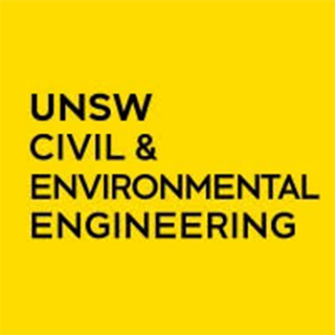About us

UNSW CCRC is a multi-disciplinary research centre comprising one of the largest university research facilities of its kind in Australia, administered within the School of BEES in the Faculty of Science.
CCRC houses research expertise in the key areas of Earth’s climate: atmospheric, oceanic and terrestrial processes. We apply basic scientific principles to pressing questions on climate dynamics, global climate change, and extremes of weather and climate.
Our atmosphere research includes studies of large scale dynamics, convection, radiation, climate feedbacks, and factors controlling precipitation changes and other meteorological impacts.
Our oceanographic research focuses on the ocean’s role in the climate system: including large-scale physical oceanography, coupled climate modes and regional ocean circulation, palaeoclimate dynamics, the ocean’s thermohaline circulation, global biogeochemical cycles and climate changes in Earth’s past.
On the land surface, we focus on modelling terrestrial processes in climate models to develop our understanding of the effects of carbon dynamics, hydrology and vegetation processes on climate.
Scientists at CCRC employ a variety of research tools including global and regional models of the atmosphere, ocean and land surface, coastal domain simulations and process models. We also use a great variety of data collected from satellites, radars, ships, weather stations, eddy-flux towers and aircraft from regions as diverse as the Great Barrier Reef, the tropics, urban surfaces, the Tasman Sea and Antarctica.



CCRC leads the ARC Centre of Excellence for Climate Extremes, a multi-university initiative to advance fundamental climate sciences in Australia formed in 2017.
The CCRC also houses the UNSW node of the ARC Centre of Excellence for Weather of the 21st Century, focussing on how Australia's weather is being reshaped by climate change.
Additionally, CCRC researchers are associated with the Australian Centre for Excellence in Antarctic Science, aiming to deepen our understanding of the Antarctic environment, its ecosystems, and the global processes it influences.
The CCRC is home to the Bushfire and Natural Hazards Cooperative Research Centre (CRC)'s Weather and Climate node which integrates scientific research with practical applications, supporting communities and governments in building resilience against floods and other natural disasters.
Researchers at the CCRC are also part of the International Universities Climate Alliance, a UNSW initiative that brings the world's leading climate and environmental research universities together in a coalition of 48 member institutions, spanning every region on earth.
Most of our research applies maths and/or physics. The CCRC and School of Physics now have a joint arrangement to promote cooperation in teaching, supervision and research. Please contact us for more details!
- Industry
- Government
- Alliances
Industry partners
AON
Aon Australia’s Climate Advisory Council has been formed with the Climate Change Research Centre (CCRC) at the University of New South Wales, Sydney, which focuses on the process-level understanding that explains the behaviour of climate extremes that directly affect Australian natural and economic systems.
The aim of Aon Australia’s Climate Advisory Council with the CCRC is to provide the latest climate science for the region, obtain expert external peer review, and act as a conduit for technical discussion and inquiry on climate-related initiatives.
Minderoo Foundation (Lethal Humidity Global Council)
The Minderoo Foundation has provided a donation to the Lethal Humidity Global Council (LHGC) in support of its initiatives. The LHGC is an international consortium of experts addressing the growing risks posed by extreme heat and humidity, particularly under conditions intensified by climate change. The Council works to raise awareness, disseminate best practices, and promote coordinated global action to mitigate the dangers of lethal humidity. Central to its advocacy is the principle of achieving “Real Zero” emissions the complete elimination of fossil fuel use rather than relying on offsetting measures. The LHGC emphasizes the urgent need for policy reforms to protect human health, ensure food security, and manage climate-driven migration pressures in regions increasingly exposed to dangerous humidity and heat.
The Pacific Community
We are working together to better understand the environmental and management factors that effect the distribution of Tuna in the Tropical Pacific and to understand the environmental impact of Fish Agregating Devices
Government partners
The Bureau of Meteorology
CCRC collaborates with the Bureau of Meteorology's Climate and Conservation Research Centre (CCRC) through joint research initiatives, education programs, and shared expertise, particularly in areas of weather and climate science.
CSIRO
We are currently collaborating to explore the development of an AI based tool to aid in climate education in Australian schools
NSW Bushfire and Natural Hazards Research Centre
The NSW Bushfire and Natural Hazards Research Centre (BNHRC) is a unique research consortium led from the Hawkesbury Institute for the Environment (HIE) at Western Sydney University (WSU) - in partnership with the University of New South Wales (UNSW), University of Wollongong (UOW), The Australian National University (ANU), The University of Melbourne (UMelb) and University of Tasmania (UTAS) – designed to deliver applied research.
National Environmental Science Program
The National Environmental Science Program (NESP) combines science and Traditional knowledge. This helps us care for Australia's environment.
Scientists partner with Traditional Owners, government, community and industry. Together they design projects for environment and climate research. The projects inform decision-making and on-ground action.
Department of Climate Change, Energy, the Environment and Water
The NSW Department of Climate Change, Energy, the Environment and Water (DCCEEW) works to protect the state’s environment and heritage. It leads the way on climate change, driving the sustainable transition to a net zero economy, powered by affordable, reliable, and clean energy.
Explore more





